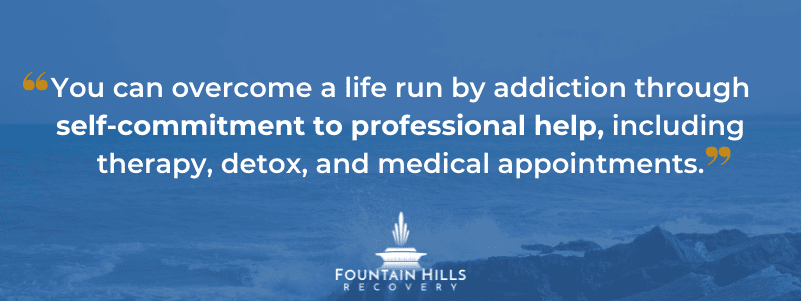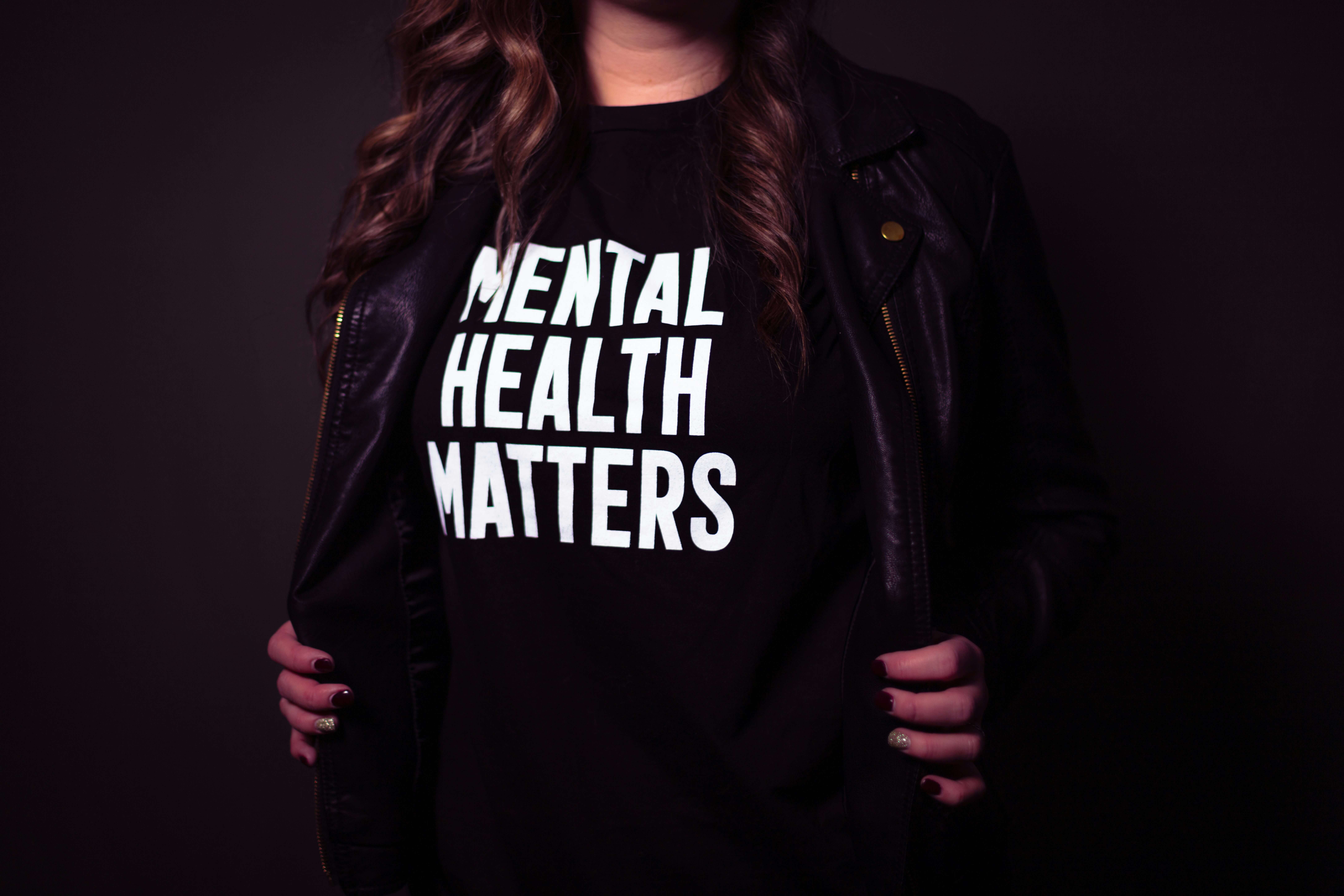Addiction is a multi-layered issue.
It doesn’t always take the form of one single substance, and it’s common for users to abuse multiple drugs concurrently.
Many adults with substance use disorders also struggle with alcohol problems.
Despite its prevalence, polydrug use has dangerous and even fatal consequences. Understanding the risks offers a sobering reality and can motivate users to reach out for help.
In this guide, we’ll cover:
- What is fentanyl?
- How addictive is fentanyl?
- Why and how is fentanyl abused?
- How does alcohol affect the body?
- What are the stages of fentanyl addiction?
- What are the long-term effects of fentanyl abuse on the brain and body?
- Does mixing fentanyl and alcohol long-term impact mental health?
- What are the risks of mixing fentanyl and alcohol?
- Is there treatment for alcohol and fentanyl addiction?
What is Fentanyl?
Fentanyl is a part of the opioid drug group. It’s a strong, synthetic substance that’s highly addictive and potent. It’s a significant issue for recreational drug users and those who become addicted via medical prescription.
What is Fentanyl used for?
Doctors use fentanyl to treat patients with severe levels of chronic pain or pain following surgery. It’s also commonly used in treating cancer patients as a pain management drug. It’s applied as a patch on the skin and passes through the blood vessels at a controlled rate. Along with its patch form, medicinal fentanyl can take the form of lozenges, lollipops, and injections.
How Addictive is Fentanyl?
Fentanyl is often compared to morphine, but it is much more addictive and potent. In reality, fentanyl is 50-100 times more potent than morphine. For comparison, methadone, meant to help people treat opioid addiction, is roughly three times as strong as morphine. Heroin is about five times as strong as morphine, making fentanyl approximately 20 times more potent than heroin.
The more often someone uses, the greater their tolerance to the substance and need for a higher dose. This increases the risk of severe side effects, including coma and death.

Why and How is Fentanyl Abused?
People prescribed fentanyl by a medical professional may develop a dependency on it and begin abusing it. Fentanyl is highly addictive because of its potency and can cause withdrawal symptoms when people stop taking it.
Along with its addictive nature, fentanyl produces other effects that can allure people to abuse it, including:
- Feelings of euphoria and relaxation
- Pain-relieving properties
- Sedation and sleepiness
The primary way people abuse fentanyl is by extracting the substance from a patch and injecting it into the veins. Because it’s difficult to determine the dosage, this is extremely dangerous. Abuse of fentanyl also occurs when someone takes prescribed medication differently from instructed by a medical professional. Forms of illicit drug use include:
- Obtaining fentanyl without a prescription through someone’s access in the field, such as a healthcare professional.
- Using your prescription recreationally or in a way not directed by a doctor.
- Using medication that’s prescribed to someone else.
Ready to take control of your life at Fountain Hills Recovery?
Call Us to Check Availability
(800) 715-2004
Fentanyl affects people differently because of weight, age, and other health factors. Symptoms and severity vary depending on the dosage size, use of other drugs, tolerance levels, etc. Generally, fentanyl abusers may experience the following:
Side Effects of Fentanyl Abuse
- Nausea
- Constipation
- Lethargy
- Slowed breathing
- Shrunken pupils
- Rapid heart rate
- Pounding in eardrum
- Tightness in the chest
- Mood changes
- Poor balance or coordination
- Hallucinations
- Intrusive or abnormal thoughts
- Loss of consciousness
- Respiratory depression (Hypoventilation)
- Coma
- fentanyl overdose
How Does Alcohol Affect the Body?
Your liver, kidneys and lungs work together to process alcohol and keep your body balanced. Heavy consumption of alcohol can cause serious harm to the organs. It can lead to serious health risks such as heart disease, bone disease, and certain cancers.
Side Effects of Alcohol
- Anxiety
- Arrhythmia (irregular heartbeat)
- Cardiomyopathy (when heart muscles struggle to pump blood)
- Diarrhea
- Fatigue
- Headaches
- High blood pressure
- Indigestion and abdominal discomfort
- Insomnia and sleep disturbances
- Irritability or frustration
- Loss of appetite
- Nausea
- Severe dehydration
- Vomiting
- Weight change
What Are the Stages of Fentanyl Addiction?
Fentanyl addiction often begins with occasional use for pain relief or fun. At first, you might feel a rush of happiness or relaxation. Over time, you may find yourself using fentanyl more regularly and needing higher doses to achieve the same effect. This leads to dependence, where your body relies on fentanyl to function normally. Eventually, addiction takes hold, making you feel out of control. You might feel compelled to use fentanyl despite its negative impact on your health and life.
What Are the Long-Term Effects of Fentanyl Abuse on the Brain and Body?
Long-term fentanyl abuse can significantly harm both your brain and body. You might experience memory issues, difficulty thinking clearly, and mood swings. Your heart and lungs may weaken, leading to breathing problems. Some people develop liver or kidney damage.
Over time, your immune system might weaken, making you more susceptible to illnesses. Chronic use can also lead to digestive issues, such as constipation and nausea, and hormonal imbalances. These problems can result in further health complications, affecting your overall quality of life.
What are the Risks of Mixing Fentanyl with Alcohol?
Taking fentanyl and alcohol together greatly increases the risk of severe side effects, overdose and death.
Side Effects of Mixing Fentanyl with Alcohol
- Irregular heart rate
- Difficulty breathing
- Chest pain
- Continuous vomiting
- Constricted pupils
- Nausea
- Decreased coordination
- Slurred speech
- Respiratory depression (Hypoventilation)
- Respiratory arrest
Seek medical attention if you or a loved one suffering from addiction exhibits the following symptoms of an overdose:
- Chest pain
- Slowed or difficulty breathing
- Bluish lips and complexion
- Seizure
- Passing out
- Coma
Does Mixing Fentanyl and Alcohol Long-Term Impact Mental Health?
Mixing fentanyl and alcohol is extremely dangerous for your mental health. You might feel more anxious, depressed, or paranoid. You could have trouble focusing or remembering things. Long-term use of both substances can increase your risk of mood disorders like depression or bipolar disorder.
The fentanyl and alcohol interaction can also severely impair your judgment and coordination, increasing the risk of accidents and injuries. Whether you prefer beer, wine, whisky or mixed drinks, combining these with fentanyl can lead to life-threatening situations and long-term health issues.
Is There Treatment for Fentanyl and Alcohol Addiction?
Experiencing addiction yourself or vicariously through a loved one is a terrifying downhill experience, but thankfully, there is hope. You can overcome a life run by addiction through self-commitment to professional help, including therapy, detox, and medical appointments.
The first step in overcoming addiction is recognizing there’s a problem. Secondly, you must undergo a detox of the substance. At Fountain Hills, we offer medically assisted treatment. Our team of professionals monitors your symptoms and will gradually aid you in each step towards recovery.
Is There Treatment for Fentanyl and Alcohol Addiction?
Experiencing addiction yourself or vicariously through a loved one is a terrifying downhill experience, but thankfully, there is hope. You can overcome a life run by addiction through self-commitment to professional help, including therapy, detox, and medical appointments.
The first step in overcoming addiction is recognizing there’s a problem. Secondly, you must undergo a detox of the substance. At Fountain Hills, we offer medically assisted treatment. Our team of professionals monitors your symptoms and will gradually aid you in each step towards recovery.

Fentanyl Withdrawal Symptoms
- Muscle and bone aches
- Nausea and vomiting
- Abdominal cramping
- Insomnia
- Watery eyes
- Runny or stuffy nose
- Headaches
- Diarrhea
- Fever
- Cold sweats and excessive sweating
- Agitation
- Loss of appetite
- Dysphoria
- Learn more
Alcoholism Withdrawal Symptoms
- Headache
- Tremors
- Nausea
- Insomnia
- Fever
- Confusion
- Irritability or frustration
- Insomnia
- Hallucinations
- Seizures
- Anxiety
Find Treatment for your Drug and Alcohol Addiction Today
Fountain Hills Recovery is Arizona’s premier addiction treatment center. We offer inpatient and outpatient treatment programs for substance use disorders, including opioids and alcohol. Our facilities and programs provide guests with the tools, support, and environment to become sober and end addiction.
Take the next step to get you or your loved one on a path to recovery, and contact us today!






